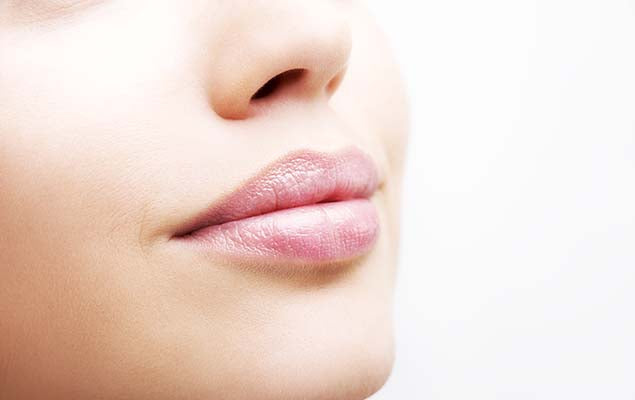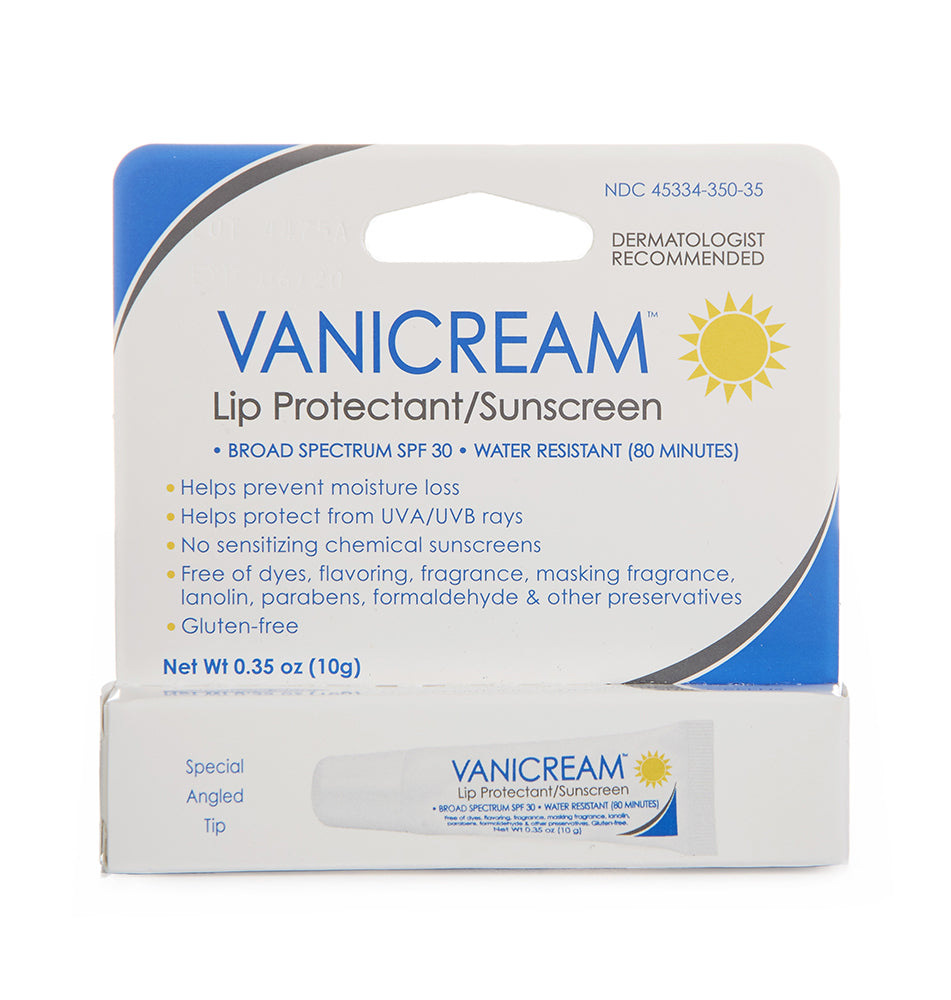Hypoallergenic Lip Balm - New, Natural, Organic Dermatologist's Lip Care

Hypoallergenic lip balm and natural lip balm free of chemicals is important because you are eating it all day long. Did you know that many lip balms and lip care products are full of chemicals and allergens? Even most natural and organic lip balms and lipsticks contain potent allergens. These cause what seems like chronic chapped lips but it's really a chronic allergic lip rash.
Hypoallergenic Lip Balm
Chemicals and allergens have no benefit to healing and protecting your lips. Avoid them. Say no to dubious chemicals and allergens in lip balms and lipstick. It's really easy to do.
Important Chemicals to Avoid in Lip Balms and Lipstick:
- Chemical sunscreens. They don’t block UV rays well and some have health concerns.
- Flavors that can cause allergy. This includes mint, cinnamon, citrus etc. Even "natural" flavors can be allergens to delicate lips.
- Botanical ingredients added only for marketing value but have no real therapeutic benefit for your lips. Keep your lip care product ingredient list simple and functional meaning oils, waxes and hydrating ingredients only.
- Toxic heavy metals. These are also too common in lipsticks.
Harmful allergen ingredients in lip balms can prompt an allergic rash that looks and feels like chapped lips.
The uncomfortable dryness and chapping of your lips due to lip balm allergy will have you reaching for that same lip balm for relief. The cycle goes on and on and you are now addicted to lip balm. The lip balm company benefits and your lips suffer. Avoid allergens and potentially toxic ingredients in your lip products:
- Use emollient moisturizing ingredients only. No flavors or market-value only additives. Keep it simple.
- Sun protective lip balm should be non-nano zinc oxide. Forget the chemical blockers. They break down fast, leaving you unprotected. Some are allergens and some are even hormone disruptors. You don’t want these dubious ingredients in your mouth.
- Go organic with your lip care when possible. Organic ingredients are highly scrutinized by the FDA. The level of scrutiny in lip products are even higher. What’s on your lips gets into your digestive system. If you take the trouble to eat carefully, also care for your lips carefully.
Dermatologist's 2 Important Lip Care Tips:
Tip #1: When you are not in the sun, use a hypoallergenic organic lip balm.
Ensure it is free of useless ingredients that cause allergy. Focus on quality emollient moisturizing oils and waxes. I love richly emollient botanical oils in lip care products. Beeswax is also a great ingredient.
This is where my Natural Lip Balm comes in. It is designed for ultimate emollient hydration in an entirely hypoallergenic base. I use only organic ingredients to give you confidence that the ingredients are natural and wholesome for your lip care. I keep a tube of this everywhere I will want lip balm - bathroom, purse, desk, lab coat - I keep it handy and use it all day to fight dry lips. I give it as gifts too because everyone needs a really good lip balm that's hypoallergenic.
Tip #2: When you are in the sun, you need a non-nano mineral zinc oxide product that is also made in a protective and rich moisturizing base.
Lips have very little ability to protect themselves from UV ray damage and wind chapping. We all have experienced the result! Using only high quality and trustworthy lip balms is important. Dermatologist Dr. Cynthia Bailey
My top choice for an SPF lip balm is:
 VaniCream Lip Protectant SPF 30 Sunscreen. This is the ultimate lip protectant from the elements. Made with dimethicone to prevent wind chapping and non-nano zinc and titanium dioxide for UV protection in a 100% hypoallergenic lip balm base. It is a must for outdoor activities.
VaniCream Lip Protectant SPF 30 Sunscreen. This is the ultimate lip protectant from the elements. Made with dimethicone to prevent wind chapping and non-nano zinc and titanium dioxide for UV protection in a 100% hypoallergenic lip balm base. It is a must for outdoor activities.
Is Lipstick Safe?
Lipstick is an entirely different topic. It is applied for color. Some lipsticks contain moisturizing ingredients. Some derive their color from artificial dyes that can be allergens. Others derive color from minerals. Most are safe but concerns with lipstick include use of or contamination with heavy and toxic metals such as lead, cadmium, mercury and aluminum. Allergens in lipsticks can be flavorings and dyes. I think it is important to be picky about your lipstick.
When I buy lipsticks and lip pencils, I read labels and buy from really reputable companies. Sometimes I simple apply my Natural Lip Balm or VaniCream Lip Sunscreen over a natural lip pencil for color and protection. Lipstick is complicated in my opinion since we eat it all day. - Dermatologist and Skin Wellness Expert Dr. Cynthia Bailey
Reference:
Tran A, Pratt M, DeKoven J., Acute allergic contact dermatitis of the lips from peppermint oil in a lip balm. Dermatitis. 2010 Mar-Apr;21(2):111-5.







